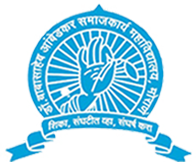- Home
- COC-Post Graduate Diploma in Rural Journalism
COC-Post Graduate Diploma in Rural Journalism
Aims/ Objectives
- To help to students toexplain various models of communication.
- To help to students to define and explain the meaning, importance, functions & scope of journalism.
- To help to students to introduce various skills in rural areas in newspapers and media.
- To help to students to impart journalistic awareness to those who want to become journalists from rural areas by imparting journalistic techniques and skills.
- To help to students to Develop skills of writing, report and editing.
- To help to students to increase the newspaper knowledge of the newspaper correspondents and newspaper professionals in the rural areas and thereby help in raising the standard of journalism.
- To help to students to provide training manpower in journalism to local small and medium newspapers in rural areas.
- To help to students toTeaching the skills required to perform various tasks at the village level of editorial office editing in 5 district or state level newspapers.
- To help to students to make the administration system in rural areas aware.
- To help to students to inform various rural development schemes and extend their benefits to the needy.
Fees Structure
| Admission Fees | 200=00 |
| Tuition Fees | 700=00 |
| Internal Examination Fees | 300=00 |
| Internal Assessment | 200=00 |
| Facilitation Charges | 100=00 |
| Total | 1500=00 |
Course Structure
Paper I: Introduction to Rural Journalism
Paper II: The main news topic of rural journalism
Paper III: Practical Course: (Visit, Assignment and Viva-voce)
Detailed Syllabus: Click here to Download
Skeleton of Course
| Sr.No. | Paper | Name Of the Subject | Theory / Practical | Teaching Hour’s | Maximal Marks Allotted | Passing | Credit | ||||
|---|---|---|---|---|---|---|---|---|---|---|---|
| External | Internal | Total | External | Internal | Total | ||||||
|
1 |
Paper I | Introduction to Rural Journalism | Theory | 76 | 60 | 40 | 100 | 24 | 16 | 40 | 6 |
| 2 | Paper II | The main news topic of rural journalism | Theory | 76 | 60 | 40 | 100 | 24 | 16 | 40 | 6 |
| 3 | Paper III | Visit, Assignment and Viva-voce | Practical | 120 | 60 | 40 | 100 | 24 | 16 | 40 | 8 |
Mode of Examination
- Theory Paper (2 x 100) = 200 marks
- Practical = 100 marks
Total = 300 marks
Each Theory paper consists of 100 Marks
External Written Examination – 60 Marks
Internal Assessment – 40 Marks
- Attendance:- 10 Marks
- Test:- 10 Marks
- Paper Presentation :- 10 Marks
- Group Discussion :- 10 Marks
Written Examination: There will be two theory subjects of 100 marks each paper during the course. Written examination for each paper will be conducted by the college by the end of the every course period.
Heads of the Passing: The following shall be separate heads of the passing
- Written theory papers – 40 marks (each paper)
- Practical – 40 marks
Failure in any one of the above heads shall be considered failure at the Certificate Course.
Assessment of Course: Assessment of the students should be done by examination and observation of overall performance in field work and allotted assignment during the course period. Written examination will be conducted after the end of each course which will be tentatively during the month of June for every batch. Paper setting, assessment and other related work will be done by the nominated committee. The examination will be conducted on the syllabus of the each theory paper for 60 marks written exam and remaining 40 marks will be for the internal assessment of the candidate for each paper. The CGPA and Grade point scheme for the assessment will be followed.
